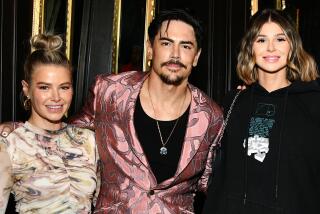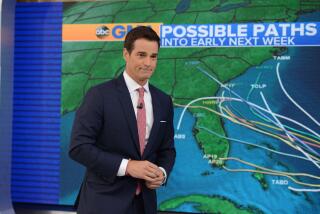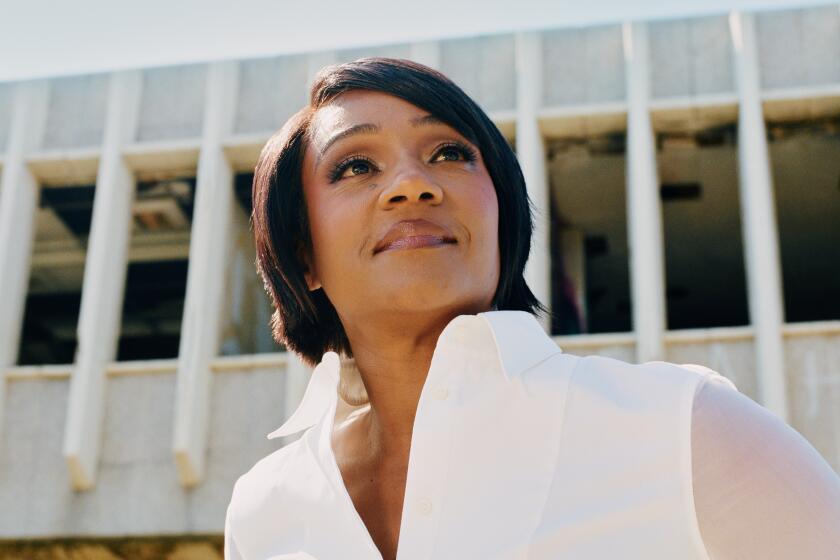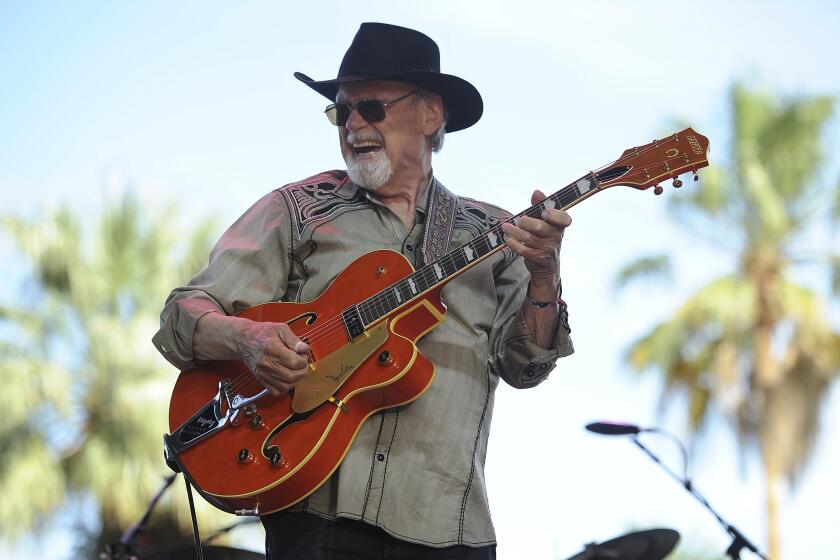A Painful Price to Pay for a Laugh
Howard Rosenberg used a telling term when he referred to the “self-mocking humor” of the new UPN sitcom “Homeboys in Outer Space” (“ ‘Homeboys’ Boldly Goes Into Spaciness,” Calendar, Aug. 27). Some of today’s African American comedians seem to delight in ridiculing black people and black culture--especially the people and culture of the inner city. This is a disturbing trend with potentially dire consequences.
Don’t get me wrong. Even though the first episode of “Homeboys” was a lot less mature and satirical than the original pilot, this is still a clever and funny show. But there is one major drawback: The computer homegirl, Loquatia (played by Rhona L. Bennett), is an embarrassing and needlessly exaggerated parody of a young black woman from the ghetto.
During the recent Television Critics Assn. press tour, “Homeboys” producer Erich Van Lowe defended Loquatia by explaining that, as the computer, she is the most intelligent one on the homeboys’ spaceship. Perhaps. But audiences are more likely to pick up on Loquatia’s sassy “attitude” and lack of class than her supposed intelligence.
Of course, Loquatia is not the only problematic black female character in the African American comedy universe. Darice, the office manager played by Kym Whitley on UPN’s “Sparks,” is not nearly as extreme as Loquatia, but she too has a habit of getting loud and uncouth.
*
But the most egregious example of cruel stereotyping of black women by black comedians was the Wayans brothers’ recent film “Don’t Be a Menace to South Central While You’re Drinking Your Juice in the ‘Hood.” That foul film (which was rife with degrading images of black folks) featured a young, unwed mother who introduced herself with the line: “My name is Dashiki.” She then degradingly described her name as being “Swahili” for a sexual intercourse position.
Then, she turned to the half-dozen kids standing behind her and asked, “What do we say when we meet a nice man?” The children sing out in unison, “Are you my daddy?” I’ll bet David Duke busted a gut laughing at that one.
Fortunately, there are numerous beautiful black women on the big and small screens to balance out the few degrading ones. Indeed, shows like “Living Single,” “Moesha,” “Boston Common,” “3rd Rock From the Sun” and the now-defunct Fox sitcom “The Crew” prove that black female characters can have attitude (and get laughs) without sinking to insulting hyperbole.
However, the presence of realistic black women on TV must not blind us to the danger of stereotypes. Black women in the inner city are perhaps the most maligned members of our society. They have been made scapegoats for the erosion of the family, the so-called “welfare state” and the explosion of juvenile crime.
When black comedians deride black women from the ghetto they feed society’s disdain for these women and lend credence to the myth of the “welfare queen,” which lies at the heart of the conservative movement to dismantle social programs for the poor.
Moreover, degrading images could deepen class divisions within the African American community and further damage the fragile self-esteem of black inner-city youth who already know that they are misunderstood, feared, patronized and ignored by people outside of the ‘hood.
More to Read
The biggest entertainment stories
Get our big stories about Hollywood, film, television, music, arts, culture and more right in your inbox as soon as they publish.
You may occasionally receive promotional content from the Los Angeles Times.






